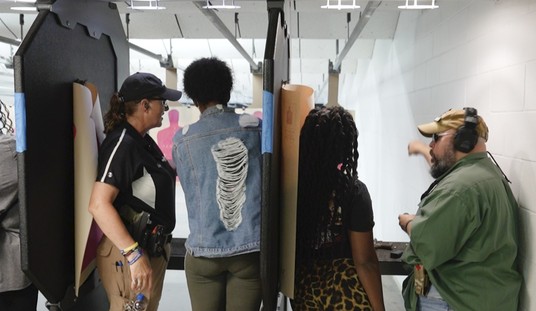With most of the world on lockdown, most places are seeing crime drop. Particularly violent crimes. While that may or may not mean anything, we are seeing that happen in most places.
Most, but not all.
However, when you take people and lock them at home for days or weeks on end, things can happen. Especially if you’re talking about people with high expertise in computers and low morals from countries that don’t really like us anyway.
The FBI has seen a spike in cyber crimes reported to its Internet Crime Complaint Center (IC3) since the beginning of the COVID-19 pandemic, as both domestic and international hackers look to take advantage of Americans’ daily activities moving increasingly online.
Tonya Ugoretz, the deputy assistant director of the FBI’s Cyber Division, said Thursday that the IC3 was receiving between 3,000 and 4,000 cybersecurity complaints each day, a major jump from prior to the COVID-19 pandemic when about 1,000 complaints were received daily.
“We have increased vulnerabilities online, and increased interest from threat actors to exploit those,” Ugoretz said during a webinar hosted by the Aspen Institute on Thursday.
Ugoretz said many of the hackers are from nation states that have a “desire to gain insight” into COVID-19-related research, and that the “rapid shift to telework” has opened up a huge amount of cyber vulnerabilities for hackers to exploit.
“Countries have a very high interest in information on the virus … such as information on a vaccine,” Ugoretz said. “We have certainly seen reconnaissance activity and some intrusions into some of those institutions, especially those who have identified themselves as working on COVID research.”
Now, some increase in cyber crimes makes sense. A lot of hackers have day jobs or whatever, jobs they have to go to in order to look like they’re living a normal life. They do the hacking on their own time. Now, they’re locked up at home and don’t have to pretend anymore.
But foreign nations doing it is another matter entirely.
Of course, this is COVID-19 research and not nuclear launch codes, but it’s also important to note that security vulnerabilities are a thing that won’t just stop once this emergency has passed.
Take Zoom, for instance. Prior to the pandemic, I’d never even heard of it. Now, everyone’s using it for various things. The problem is that it doesn’t seem to be particularly secure either. There have been incidents where hackers gained control and started playing adult films during the session. That’s…less than ideal.
These new vulnerabilities may be exploited later. Especially since a lot of businesses may be seeing increased productivity from workers telecommuting, thus decide to make this an option permanently.
While we can hope these new vulnerabilities will be shored up in short order, we can’t be too sure. It’s probably a good idea for everyone to take extra precautions so as to make sure you don’t end up as a victim. Kind of like carrying a gun, but on your computer. It’s just too bad there’s no digital equivalent for shooting the bastards.








